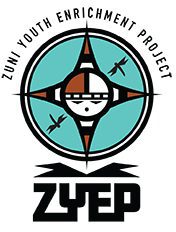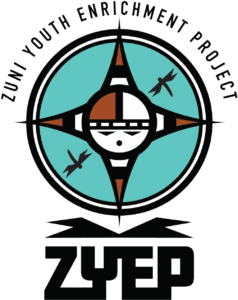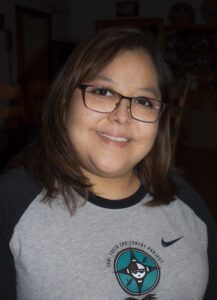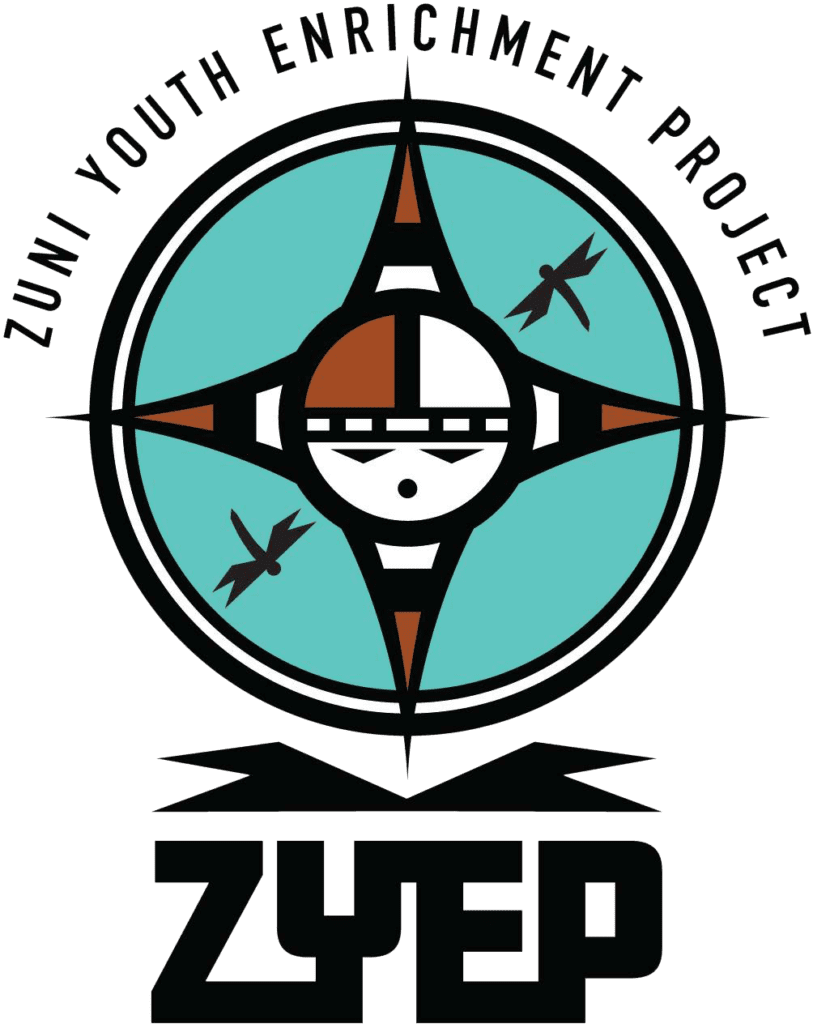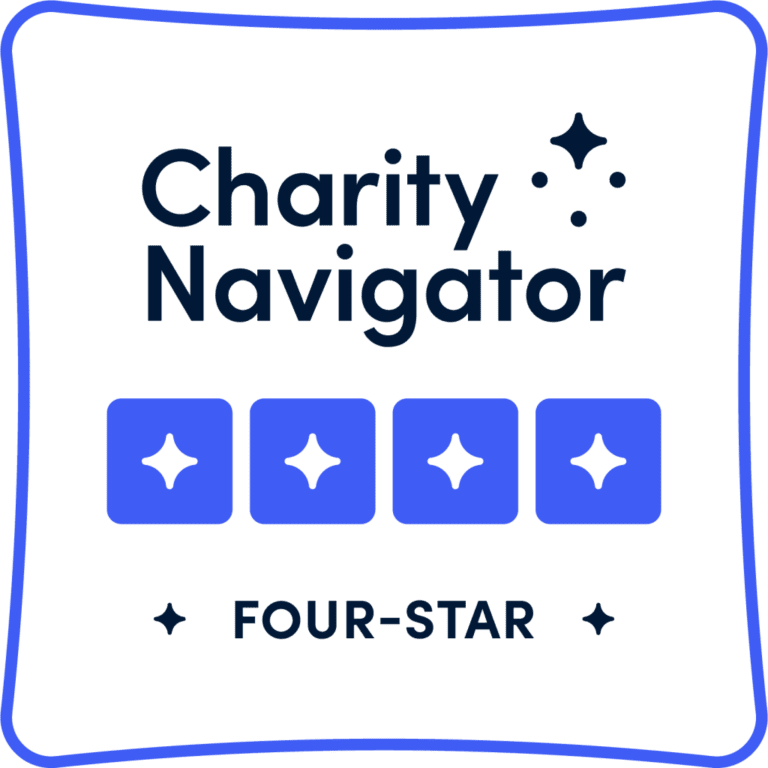The Pueblo of Zuni is filled with people who seek to share their knowledge with the community’s precious youth. The next generation will carry on Zuni culture and traditions, so we must give them the support they need.
“At ZYEP, our staff and community partners are dedicated to providing that support so our children will understand exactly who they are and where they come from,” says Shelley Edaakie, ZYEP’s office coordinator. “We put our children first in our work,” she continues, “because many haven’t had the same experiences I did growing up in Zuni.
Shelley was raised in a traditional Zuni family, learning strong cultural values that emphasized kindness, respect, humility, and hard work. The family also ensured that children would grow up deeply rooted in Zuni traditions.
“Despite the seriousness of that, we also go through life with a lot of humor and laughter,” Shelley notes. “We Zunis love to have fun and eat lots of good food during our bright, colorful ceremonies.”
The family spoke only Zuni at home, but Shelley learned to understand English starting at age 2, when her Hotda (maternal grandmother) taught her to read. She understood English when she started kindergarten; fortunately, the teacher was Zuni and helped the children from Zuni-speaking families make the transition.
Extended family was an important part of Shelley’s upbringing. For the first six years of her life, she lived with her maternal grandparents, aunt, and three cousins — Shelley said she considers them to be her brothers.
“We don’t have a word for cousin in our language, so my cousins are all my brothers and sisters,” she explained. “My family situation was pretty common in Zuni. Many families lived in one house; my mother also grew up living with her parents, five sisters, maternal grandparents, aunts, uncles, and cousins.
“Most families lived with the maternal side,” she continued. “I lived in the same neighborhood with my mom’s family all around us, so even after we moved out of my grandparents house and lived with my mom, brother, and eventually my stepdad, I was basically raised by my grandparents, aunts, and uncles.”
Shelley’s mother was a single parent, working as a teaching assistant at the local elementary school. She supplemented her income by making jewelry late at night while balancing her studies to earn her Bachelor of Science degree in elementary education. According to Shelley, her mother learned silversmithing from her family.
“Everyone on my mom’s side were all silversmiths who made Zuni jewelry,” she said. “This was also common in Zuni. At the time I was growing up, about 80 to 90 percent of households had one or more artists. They made jewelry, paintings, pottery, fetish stone carvings, and wooden carvings. I grew up within that artistic tradition.”
Zuni society is matrilineal, and Shelley said her female relatives set a powerful example.
“My mother, Hotda, A:ts’itda (mother’s sisters) and A:kuku (paternal aunts) taught me to be a strong Zuni woman,” she said. “My late Hotda was a force all on her own. She passed down a lot of knowledge about our cultural history and values, which I often share with my coworkers. She helped guide me in my own journey as I gained an important role in our religious community.”
Shelley noted that her male relatives played vital roles as well, especially her lateNana (grandfather), who served as a father figure. He was, she said, a quiet, gentle, hardworking man who constantly strived to keep the family comfortable. Never idle, he raised chickens, ducks, geese, and turkeys that he raised for eggs and feathers; he also had a herd of sheep on the reservation’s grazing lands.
“With my older brother and I being raised mainly by our mother, my Nana stepped in and taught my brothers and cousins their roles and responsibilities as Zuni men,” she said. “He never raised his voice and always had a quiet presence, but he had a quick, witty sense of humor too. He was a World War II veteran, and I didn’t know that until I was in my teens. He always guided us in his quiet way, and I learned a lot from him.”
Shelley also honored her stepfather, a self-employed artist who she said has been a great influence. He doesn’t have children of his own, and he took on the role of father and grandfather in the family.
“He also was raised in a traditional Zuni family, and he taught me to be a proud Zuni artist,” she said. “We have collaborated on several pieces, combining his innovative fetish carvings and my pottery. He supported my brother and I as we went to school, and he has always encouraged us to follow our own pursuits. I’m very grateful to have someone like him in my life.”
In addition to her paternal family members, who have provided unconditional love and support to Shelley and her brother, Shelley also acknowledges the lasting role of certain community members. In particular, she remembered a high school pottery teacher who taught her to appreciate this special artistic medium.
“He encouraged me to keep going even when I thought I was terrible at it,” she remembered. “He helped me appreciate the cultural values of making Zuni pottery, and I developed a passion for it. I still make my pottery today.”
In addition to her background in pottery, Shelley also holds a Bachelor of Fine Art degree in photography and graphic design. She joined ZYEP in 2016, and she said she is encouraged at the positive impact the nonprofit organization is having in the lives of today’s young people.
“Our youth are treasures who will carry on our vibrant culture and traditions, so we need to give them love, knowledge, experiences, and support to make that happen,” she said. “When we come together to do that, we are creating a healthier community and a stronger future for all of us.”
